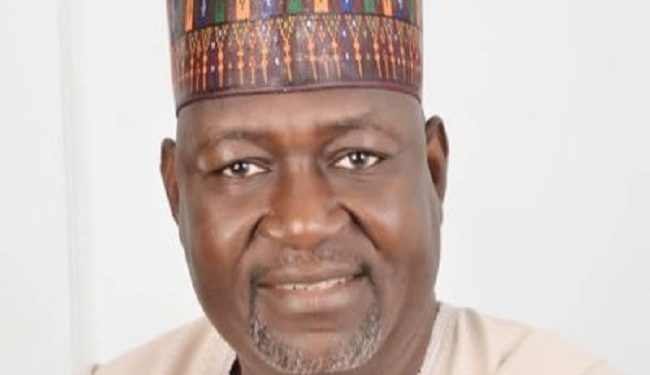For months, the congressional committee investigating last year’s Jan. 6 attack on the U.S. Capitol has sought information on the role members of Congress played in trying to undermine the 2020 presidential election. Several Republican lawmakers admitted they were in contact with President Donald Trump during the riot or in the days leading up to it, making their testimony potentially key to the investigation.
But getting those members of Congress to voluntarily take the witness stand for further questioning has proven to be a difficult task, and compelling them to appear through subpoenas would bring the committee into uncharted legal waters. On Sunday, Ohio Rep. Jim Jordan, one of Trump’s closest allies, became the second Republican lawmaker to turn down the committee’s request for a meeting, calling it an “unprecedented and inappropriate demand” and an “outrageous abuse of the Select Committee’s authority.”
Jordan’s decision to not cooperate with the investigation came shortly after Rep. Scott Perry of Pennsylvania also declined an interview request from the Jan. 6 committee, framing the panel as “illegitimate.”
The select committee—consisting of seven Democrats and two Republicans—has been reluctant to issue subpoenas for sitting members of Congress, preferring to gather evidence through voluntary collaboration to avoid creating a complicated legal and political showdown. But Rep. Bennie Thompson, a Democrat from Mississippi who chairs the panel, has repeatedly said he would not hesitate to subpoena recalcitrant lawmakers if it deemed that necessary and legal.
However, going down that route would be unprecedented, legal experts say. Lawmakers rarely receive subpoenas from their colleagues, except for when brought up on ethics violations, according to two former House counsels. “To my knowledge, a legislative committee or oversight probe has never done this,” says Stanley Brand, who served as House counsel from 1977 to 1983. The closest parallel may have been in 1972, when a senator’s aide was subpoenaed to testify in front of a federal grand jury in Gravel v. United States about his role in obtaining and arranging the publication of the Pentagon Papers, according to Kimberly Wehle, a law professor at the University of Baltimore.
The lack of historical precedent means that if the committee does attempt to subpoena their colleagues, the move would almost certainly get challenged in court. Republican lawmakers would likely rely on the speech or debate clause of the Constitution—which has been interpreted to provide members of Congress with testimonial privileges as well as criminal and civil immunity for all legislative acts—as part of their legal defense to refuse congressional subpoenas. The text states that “for any Speech or Debate in either House,” Representatives and Senators “shall not be questioned in any other Place.” For example, Brand suggests that conversations among lawmakers about what was going to occur in the House chamber on Jan. 6 would be privileged under the scope of legislative acts.
But Wehle argues it might be legally permissible for the Jan. 6 committee to issue subpoenas to lawmakers because the speech or debate clause doesn’t represent an absolute privilege. “Courts have said there are limits,” Wehle says about the immunity. “Engaging in discussions around a potential coup of a legitimate presidential election that interferes with the peaceful transfer of power from one president to another is not within the legitimate scope of Article I of the Constitution. The question is, where do you draw the line?”
Another potential legal defense that lawmakers might use in court to fight a subpoena is to argue that the Jan. 6 committee’s request is politically motivated. Although the committee is bipartisan, a majority of its members are Democrats. Rep. Jordan hinted at this in his letter to the committee: “The American people are tired of Democrats’ nonstop investigations and partisan witch hunts,” he wrote.
But no court has held that partisanship is a reason to let someone avoid a subpoena, according to Thomas Hungar, who served as House counsel from 2016 to 2019. “If the committee has a legitimate legislative purpose, the fact that there are claims of political motivation have generally not been deemed a sufficient basis for resisting compliance with a subpoena,” he says.
Make sense of what matters in Washington. Sign up for the daily D.C. Brief newsletter.
The tricky legal territory has put the Jan. 6 committee in a difficult position, but not an impossible one. Thompson has indicated the panel will hold a flurry of public hearings early this year where messages and testimony will be revealed, many of which may contain information about the Republican lawmakers who refused to cooperate with their investigation. The hope is to let the “court of public opinion” reveal what those lawmakers were up to on Jan. 6 and the days before, Thompson said.
According to Brand, the Jan. 6 committee may not need to subpoena members of Congress to learn about their role in promoting election conspiracies, given the amount of information already obtained. “They have 300 witness statements and all these records, in addition to an ongoing Justice Department criminal investigation,” he says. “What evidence will they get that the Justice Department doesn’t already have or could easily get as part of the criminal cases?”
The committee has already subpoenaed more than 50 people and organizations as part of its effort to understand what led a pro-Trump mob to storm the Capitol and delay the certification of Joe Biden’s election victory. Former strategist Stephen Bannon and White House chief of staff Mark Meadows were held in contempt of Congress after they refused to comply with subpoenas requesting they meet with investigators, and both could end up serving time in jail if charged by the Justice Department.
As the Jan. 6 committee evaluates its chances at enforcing subpoenas against members of Congress, legal experts warn about setting a potentially dangerous precedent. Hungar worries that in today’s hyper-partisan environment, taking that step could incentivize future investigations to issue subpoenas for political purposes when the balance of power shifts. He warns: “A very unpleasant and unfortunate tit-for-tat kind of situation could develop.”
More Must-Read Stories From TIME
- Shonda Rhimes Already Knows What You’re Going to Watch Next
- How Donald Trump Turned Jan. 6 into a Windfall
- Why 2022 Is the Year We Learn to Live With COVID-19
- Public Schools Are Struggling to Retain Black Teachers. These Ex-Teachers Explain Why
- CDC Director Rochelle Walensky Faces a Surging Virus—And a Crisis of Trust
- How Addictive Social Media Algorithms Could Finally Face a Reckoning in 2022
- The Supreme Court Could Let Religious Schools Take Taxpayer Money. Former Students Say That’s a Mistake
Write to Nik Popli at nik.popli@time.com.
Note: This article have been indexed to our site. We do not claim legitimacy, ownership or copyright of any of the content above. To see the article at original source Click Here













